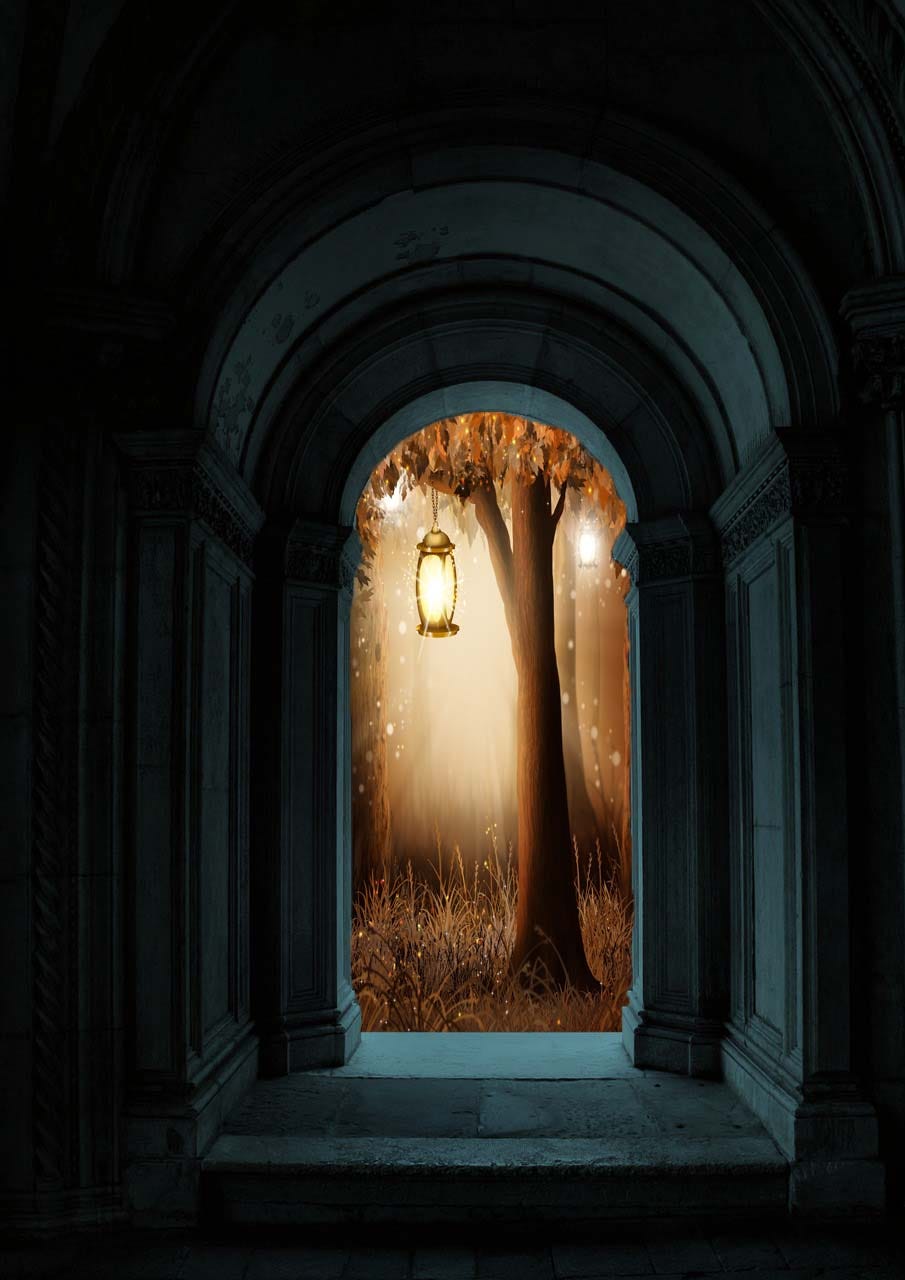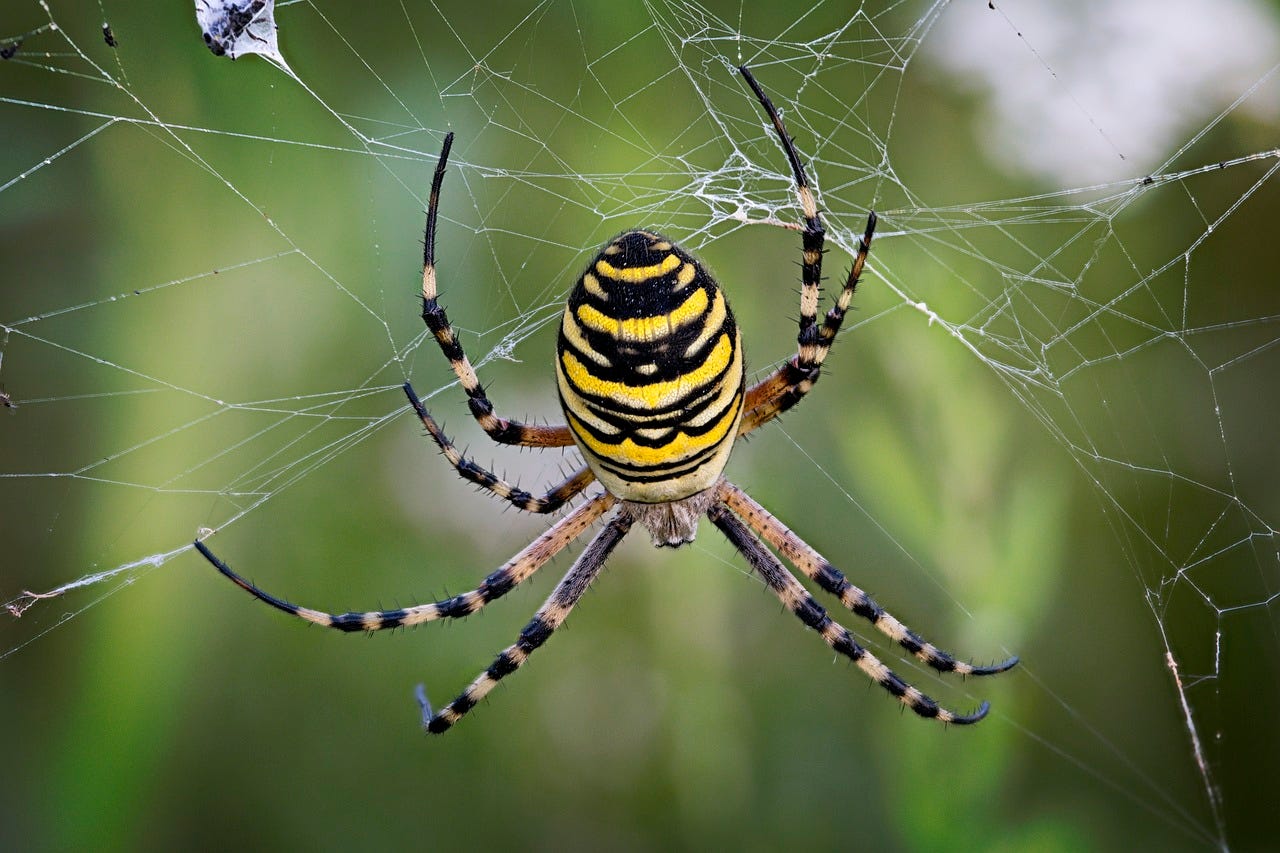And now, after a five-year wait, we come to the next installment. I thought it was going to be What is the Secret of the Perilous Woods?
Two weeks ago, something different occurred to me.
Something creepily disturbing.
To sum up what we have covered so far: the Degenerati push tales of witches and magic and demons, etc., but they mock and deconstruct fairytales, even though fairytales are also about magic and witches.
Why? Because fairytales are moral.
Which brings me to a very important question: The Wood Perilous is perilous indeed. It is full of terrible danger: witches that eat children, ogres, giants, and sometimes even darker things that creep out of Hell and lurk in the night. If the perils of the forest are so perilous, why in the world would anyone need to defend them?
The initial answer is: because these horrendous terrors have been declawed and are now pleasant and banal. The tricky fairy who Cornishmen speak of in hushed, respectful voices has become frivolous and mild. The dangerous enchantress who calls upon All the Powers of Hell has become pathetic—dewinged and dumped. The eerie unicorn is now being followed around by a bored pooper-scooper, and devils now date girls on Disney.
But removing the perils makes everything okay, right? Isn’t this a victory? The dangers of days gone by are gone, right?
Well, about that…
In Neil Gaiman’s novel Anansi Boys, there is a fairytale about Anansi the Spider and Tiger. In it, Anansi, the spider god of west Africa, helps scare Tiger away by using stories (which I believe, according to the local lore, Anansi tricked out of Tiger to begin with) to mock him, to make fun of his roar, etc.
So when Tiger shows up and roars, all the other animals remember the mockery and laugh. Embarrassed, Tiger turns tail and runs.
Anansi has now gotten rid of Tiger.
Only, every time I think about this story, I think: but it was a TIGER! What do you think is going to happen if it gets hungry?
Recently, however, I had another, more disturbing thought.
In another Neil Gaiman book, American Gods, one of the main threads of the story is the concept of a two-man con. One confidence trickster can only fool so many people. But if there are two men, working together, pretending to be strangers, they can trick a great many more people.
If a man offers to heal booboos with snake oil, you might balk. But if a perfect stranger who has never seen this man before walks up and is healed… Well! Maybe it works!
The disturbing thought that struck me was: What if Anansi and Tiger is a two-man con?
Anansi knows Tiger is fearsome and ferocious. He knows that sooner or later, the Tiger will get hungry.
Then what will happen? Well, Tiger will come roaring back with his huge fangs and sharp claws and rip apart one of the other animals and eat it.
And Anansi and his spider family can feast on the leavings.
Anansi used stories to declaw, not Tiger, but Tiger’s victims.
Once upon a time, my family was house hunting. One of the houses was in the woods. It was just beautiful, with a gorgeous forest around it. To help give the full picture of life in this house, the family who owned it had left photos showing what it looked like in other seasons. There were tulips, flowering trees, and one photo that showed a bear sitting on the front lawn.
My daughter looked at the picture of the bear and declared that she hoped we would move here and a bear would come so that she could go out and pet it. When we warned her that bears were dangerous, she said, “But what if it was a nice bear?”
Nothing we said could convince her that wild bears were dangerous. She had not heard the right fairytales when she was young. (This is not our fault. She was almost fourteen when she joined our family.)
She did not understand that bears were perilous.
So what do we need to do if we wish to save Tiger’s victims? Strangely, we need to defend Tiger—restore to him his true fearsomeness. Only then will those upon whom he preys know to beware his fierce might.
And how do we do this?
With stories. With poetry:
Tyger Tyger, burning bright,
In the forests of the night;
What immortal hand or eye,
Could frame thy fearful symmetry?
William BlakeNo one is going to laugh when that Tiger roars.
Who benefits if the evil enchantress Maleficent is shown to be a hapless victim who dated a nice guy that turned out to be a total jerk and cut off her wings? Who benefits if we all feel sorry for her and see things from her point of view and stop being frightened of her?
Only one person benefits—Maleficent.
She still has at her disposal all the powers of Hell, but now her victims are disarmed. They don’t suspect her. They are no longer cautious.
They have forgotten the secrets of the Perilous Wood.
So why is it the Degenerati push tales of witches and de-fanged demons but don’t favor true fairytales?
They know that the fairytale is warning its audience about them.
Next Time, finally, The Secret of the Perilous Wood!
Previous: Part Five: All About The Magic: Or the Gosling of the Golden Creek Vs. The Unicorn Pooper-Scoopers








This was sort of what I was trying to achieve with my novella Anemia. A reaction to the "sexy, sympathetic vampire" cliche.
It's bad to make something dangerous look harmless. But it's even worse to make it look desirable.
Insightful, but I'm not sure Ananzi Boys is the right example. Tiger was clearly shown as dangerous all through the book, and I still wouldn't want to get in his reach. Meanwhile it was mischievous fun to take something intimidating about that bully and make it ridiculous.
Ironically, Gaiman touched on the theme of your post in his novel Coraline, where the girl from our world goes into what she at first thinks is a fantasy world of harmless fun, only to find out it's flat-out demonic and the domain of a creature that plans to suck out her soul.
I watched a vid recently - it gets kind of spicy, so I won't post it - that talked about how for all it's proto-Wokeness, a lot of Gaiman's early stuff was pretty un-PC, like the Sandman comic where a witch kicks would-be student out of her magic shop because the would-be student is trans and so can't use the magic of the feminine.
The vid makes some interesting points. In the 90s and early 2000s there were a lot of fantasists - Gaiman, Whedon, King, etc - who seemed to be honestly exploring ideas in their stories, and even hinting that there's something deep and true beneath the much of postmodernism.
Then they realized their stories were going places that wouldn't be approved of by All the Best People, and to a man, they sold out.
Now? Gaiman is just fine with adaptions erasing his early work. Heck, the guy considered Chesterton as an influence, and to show his gratitude Gaiman reduced Chesterton to brand with no more depth than a picture on a lunchbox, while promoting things that would disgust the real inspiration.